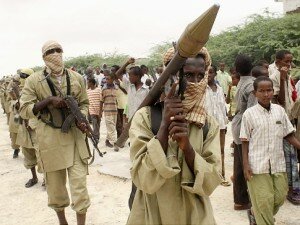America can’t ignore Somalia any longer
On Saturday, US law enforcement officers arrested two men at Kennedy International Airport who were on their way to join the Somali Islamic extremist group, Al Shabaab.
Mr Mohamed Mahmood Alessa, 20, and Mr Carlos Eduardo Almonte, 24, had saved money, bought military equipment, done some training and were looking forward to joining the Somali terror group and to behead fellow Americans and carry out acts of terrorism against their own country.
This is one of many cases which emphasise the rising importance of Somalia as a place where young people go to get radicalised over grievances that exist only in the minds of extremists.
There have been reports of many young people being recruited from Nairobi and elsewhere to go for training in Somalia. Such youths return as hardened terrorists, posing a grave danger to society at large and to their communities in particular.
Today, Somalia is the odd man of the world’s terror league. All regions of the world, which breed and nurture extremists, are receiving intense attention, except Somalia. Everyone knows there is a problem, but they would rather deal with more immediate priorities.

Kenya is certainly worried about the contagion spreading out of the lawless wastes of Somalia, but it has a plate full of priorities.
The US is fighting wars in Afghanistan, Iraq and Pakistan. Its economy is just emerging out of a serious recession and it has a full agenda of domestic issues.
The United Kingdom is preoccupied with its own economic concerns and worries about the wider Euro-zone. The European Union is distracted by the economic woes of Southern Europe and the possibility of the collapse of its common currency.
As the world is preoccupied with its other problems, there is a high likelihood that a terrorist radicalised and trained somewhere in Somalia will spill the blood of the innocent in some capital at some point.
The problem with Somalia is that after almost two decades of state collapse, there is no easy solution to the problems it is causing the international community. It is not the peace-keeping challenge it was in 1993. When the world finally goes into Somalia, it will have to rebuild the country.
Piracy flourishes
Its terror breeding grounds will only be wiped out by a strong and functioning government. Piracy continues to flourish, defying 150 warships deployed by the world’s mightiest armies. Piracy will cease when there is law and order inside the Horn of Africa country.
Somalia is a job for the United Nations, the body with the expertise to reconstruct failed states. But it won’t lift a finger without the Security Council’s keen interest.
Countries such as Ethiopia, Kenya, Uganda and Burundi would dearly love to have Somalia stabilised in their own interests. But they have neither the resources, expertise nor world influence to get the job done. Which is where America comes in.
The US cannot rely on a group of broke African countries to secure its interests in the region and, to some extent, its homeland. It’s influence is required to drain the so-called Somalia reservoir of terrorism.
African countries are willing to be part of the Somalia solution. Organisations such as Igad and the African Union have played a vital role in regional peace and they are capable of doing a lot more. But they need the support of the international community.
The peace agreement, which led to the formation of the Transitional Federal Government, was guaranteed by the US and the UN. It provides a good basis for a wider peace-keeping operation.
America and the UN need to stop making excuses and do their bit.
———–
Source:- Daily Nation.
Comments
comments
 Calendar
Calendar





































